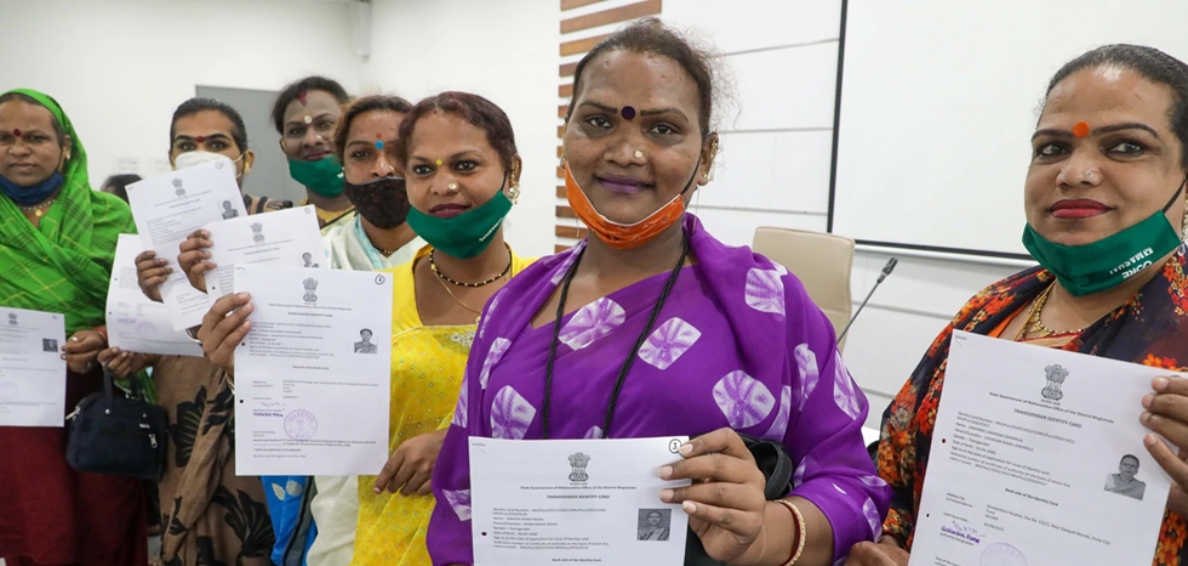- Courses
- GS Full Course 1 Year
- GS Full Course 2 Year
- GS Full Course 3 Year
- GS Full Course Till Selection
- Online Program
- GS Recorded Course
- NCERT (Recorded 500+ Hours)
- Polity Recorded Course
- Geography Recorded Course
- Economy Recorded Course
- AMAC Recorded Course
- Modern India, Post Independence & World History
- Environment Recoded Course
- Governance Recoded Course
- Science & Tech. Recoded Course
- International Relations and Internal Security Recorded Course
- Disaster Management Module Course
- Ethics Recoded Course
- Essay Recoded Course
- Current Affairs Recoded Course
- CSAT
- 5 LAYERED ARJUNA Mentorship
- Public Administration Optional
- ABOUT US
- OUR TOPPERS
- TEST SERIES
- FREE STUDY MATERIAL
- VIDEOS
- CONTACT US
Transgender People Can Change Name and Gender on Birth Certificates: Karnataka High Court
Transgender People Can Change Name and Gender on Birth Certificates: Karnataka High Court
05-01-2025

- In a significant decision, the Karnataka High Court (HC) ruled that transgender individuals have the right to change their name and gender on their birth certificates.
- This right was already guaranteed under the Transgender Persons (Protection of Rights) Act, 2019.
- The case came up five years after the law came into force, which clearly allows transgender people to update their gender identity in official documents.
- The case involves a transgender woman, known as Ms. X, who had undergone sex-reassignment surgery and changed her name and gender on official documents like Aadhaar cards, passports, and driving licenses.
- However, when she tried to update her birth certificate, her request was denied.
- The Karnataka HC’s ruling clarifies the law and sets a clear precedent for transgender people across India.
Key Legal Issues and Petitioner's Argument
-
Petitioner’s Background and Request:
- Gender Dysphoria: Ms. X was diagnosed with gender dysphoria, a condition where a person’s gender identity doesn’t match the sex they were assigned at birth.
- Legal Change of Identity: She legally changed her name and gender after having sex-reassignment surgery. But when she tried to update her birth certificate, her request was rejected by the Registrar of Births and Deaths in Mangalore.
- Reason for Rejection: The Registrar referred to Section 15 of the Registration of Births and Deaths Act, 1969 (the 1969 Act), which allows changes to birth certificates only if the original information is incorrect, fraudulent, or entered wrongly. This law did not consider the changes in gender identity.
-
Argument in Petition:
- Violation of Dignity: Ms. X argued that the refusal to change her birth certificate violated her right to dignity under Article 21 of the Indian Constitution.
- This article guarantees the right to life and personal liberty.
- According to her, having a birth certificate that didn’t match her gender identity forced her to live a dual life, causing emotional distress and exposing her to discrimination.
- Right to Self-Identity: She argued that her identity had changed legally and medically, and that her birth certificate should reflect this change.
- She referred to the Transgender Persons (Protection of Rights) Act, 2019, which allows such changes.
-
State of Karnataka’s Argument:
- The state of Karnataka argued that the Registrar could only act according to the 1969 Act, which didn’t allow changes unless the details were incorrect or fraudulent.
Key Legal Provisions and Laws Involved
-
Registration of Births and Deaths Act, 1969:
- The 1969 Act is the law that governs the registration of births and deaths in India and provides the legal framework for issuing birth certificates.
- Section 15: This section deals with how to correct birth certificates.
- It allows changes only if the information is incorrect, fraudulent, or wrongly entered. It does not consider changes in gender identity.
-
Transgender Persons (Protection of Rights) Act, 2019:
- The Transgender Act was passed to protect the rights of transgender people and ensure they are treated equally and fairly in society.
- Section 6: This section provides that a transgender person can get a Certificate of Identity as proof of their gender identity. This certificate can be updated if the person undergoes sex reassignment surgery.
- Section 7: This section allows transgender individuals to change their gender identity in official documents after having a sex-reassignment surgery.
- Section 8: Explicitly allows transgender individuals to change their first name on their birth certificate and other official documents.
- Rules, 2020: These rules explain the steps to apply for the Certificate of Identity. They also list the birth certificate as one of the official documents that can be updated once the certificate is issued.
Karnataka HC's Judgment: Special Laws vs General Laws
-
The Doctrine of “Generalia Specialibus Non Derogant”:
- The Karnataka HC used a legal principle called “generalia specialibus non derogant”, which means special laws override general laws.
- The court explained that the Transgender Act, being a special law that focuses specifically on transgender people, should take precedence over the 1969 Act, which is a general law that applies to all citizens for registering births and deaths.
-
HC's Interpretation:
- The court ruled that the 1969 Act must comply with the Transgender Act, as the latter addresses the specific needs of transgender people.
- Therefore, the Transgender Act should prevail over the 1969 Act in cases involving transgender identity.
- The HC also pointed out that the Registrar of Births and Deaths must accept the Certificate of Identity issued under the Transgender Act and update the birth certificate accordingly.
- The court mentioned that this should be done until the 1969 Act is updated to reflect the changes needed to support transgender people’s rights.
Process for Transgender Individuals to Update Official Documents
-
Application for Certificate of Identity:
- A transgender person needs to apply to the District Magistrate (DM) with an affidavit declaring their gender identity.
- This affidavit is a formal statement that the person wants to be recognized by their gender identity.
- Once the application is processed, the DM issues an Identification Number as proof that the application is in progress.
- The DM must issue the Certificate of Identity and Transgender Identity Card within 30 days. If the application is denied, the DM must explain why within the same time frame.
-
Revised Certificate Post Surgery:
- If a transgender person undergoes sex reassignment surgery, they can get a medical certificate from the Medical Superintendent or Chief Medical Officer.
- With this medical certificate, they can then apply to the DM for a revised Certificate of Identity, which must be issued within 15 days.
-
Updating Other Official Documents:
- After receiving the Certificate of Identity, the individual can approach the authorities responsible for issuing official documents like Aadhaar cards, driving licenses, passports, and birth certificates to update their name, gender, and other personal details.
- These authorities are required to update these records within 15 days of receiving the application and the Certificate of Identity.
-
No Need for Application If Gender Change Preceded the Act:
- If an individual had already changed their gender in official documents before the Transgender Act came into force, they don’t need to apply for a new Certificate of Identity.
Impact and Significance of the Judgment
-
Legal Recognition of Gender Identity:
- This ruling confirms the legal right of transgender individuals to have their gender identity reflected in official documents.
- This is important for transgender people to avoid discrimination and harassment.
-
Human Dignity and Equality:
- The court emphasized the importance of protecting the dignity and equality of transgender individuals by ensuring their birth certificates match their gender identity. This is a critical step towards social inclusion and equality.
-
Potential for Reform:
- This decision might encourage lawmakers to amend the 1969 Act to bring it in line with the Transgender Persons Act, making the process of updating documents more inclusive and straightforward for transgender people.
-
Broader Social Implications:
- This ruling could lead to positive changes in other states, encouraging them to recognize the rights of transgender people more effectively and to make the process of updating documents easier and less discriminatory.
Conclusion
The Karnataka High Court’s ruling is a major step forward in recognizing the rights of transgender individuals in India. By prioritizing the Transgender Persons (Protection of Rights) Act, 2019 over the Registration of Births and Deaths Act, 1969, the court has confirmed that transgender people have the right to update their name and gender in official documents. This ruling helps ensure that transgender people can live their lives with dignity and identity. It sets an important precedent for future cases involving the legal recognition of gender identity, and it is a key moment in the fight for transgender equality in India.
|
Also Read |
|


